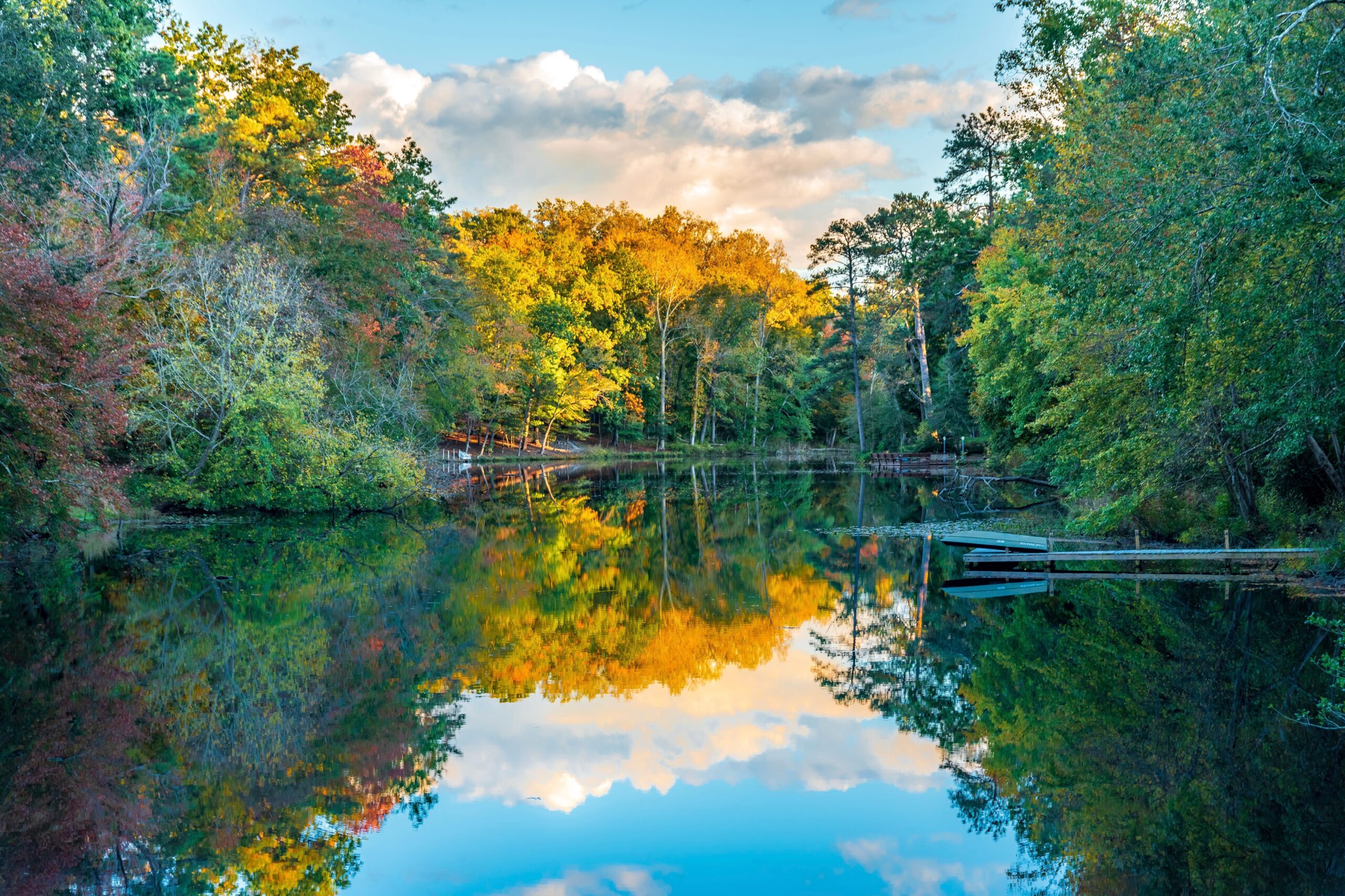Bill of the Day: Protecting Trees for Clean Water & Community Health
Updated on March 6th, 2024.

Colorful lake, Hanover County. Image credit: Lisa Watkins
How Do Trees Impact Water Quality & Public Health?
Trees play a vital role in improving water quality by slowing down and filtering rainfall, preventing soil erosion, and reducing polluted runoff. Tree root systems reduce the amount of sediment and runoff that pollutes our waterways by holding soil in place and uptaking pollutants. Trees also act as natural barriers to flooding by absorbing and slowing the flow of rainwater.
Tree canopies, measured by the amount of space covered by trees when viewed from above, are a crucial element for ensuring human health. Tree canopy provides essential shade and stabilizes air temperatures by retaining and releasing water to create a net cooling effect. Furthermore, trees reduce air pollution by absorbing an array of air pollutants that contribute to climate change and respiratory illness. Overall, trees contribute significantly to water quality and public health.
Yet, Virginia continues to lose trees at a rapid rate, which limits the state’s ability to improve water quality and public health. The loss of trees poses a significant threat to the well-being of all Virginians, especially those in our most vulnerable communities.
Several pieces of legislation proposed in the General Assembly can ensure that Virginians expand our efforts to protect trees. You can take a deeper dive into assessing tree canopy loss in Our Common Agenda. To learn more, read our “Assessing Tree Canopy Loss” policy paper.
Bills to Support Tree Preservation in the General Assembly
Legislators have introduced several bills to support tree canopy preservation and protection efforts. VCN has taken a position on the following of these bills:
(Delegate Patrick Hope) Requires the Department of Forestry to assess the health of Virginia’s forests and identify primary reasons for tree canopy loss. These assessments will focus on high-impact areas next to streams and wetlands, those on steep or erodible soils, and those next to large stretches of forest or pathways for wildlife.
(Delegate Rip Sullivan) Strengthens tree conservation by incentivizing developers to preserve mature trees and help maintain newly-planted trees. It will also expand the use of tree funds to allow planting on both public and private property. Companion to SB121.
(Delegate Patrick Hope) Provides localities additional authority to expand tree canopy preservation or replacement efforts during construction. This involves increasing tree replacement requirements when addressing challenges like urban heat islands, stormwater runoff, flooding, or air pollution.
(Delegate Betsy Carr) Expands tree conservation by allowing localities the authority to establish canopy preservation or replacement requirements during construction. This involves establishing minimum tree canopy requirements, creating a tree canopy fund for developers to pay if requirements cannot be met, and providing incentives to preserve mature or stands of trees on-site.
(Senator Suhas Subramanyam) Strengthens tree conservation by incentivizing developers to preserve mature trees and help maintain newly-planted trees. It will also expand the use of tree funds to allow planting on both public and private property. Companion to HB459.
(Delegate Karen Keys-Gamarra, Delegate Betsy Carr) Expands tree conservation by allowing localities the authority to establish canopy preservation or replacement requirements during construction. This involves establishing minimum tree canopy requirements, creating a tree canopy fund for developers to pay if requirements cannot be met, and providing incentives to preserve mature or stands of trees on-site. Incorporated into HB 1100.
Take Action
Bills to support tree canopy preservation are currently being heard by committees in the House and Senate. Reach out to your legislators today and ask them to support HB309!
